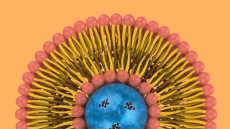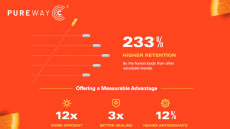Low vitamin D status may raise cancer risk, say scientists
population at greater risk of lower levels, could be an easy way to
reduce a number of cancers, say researchers from Harvard.
"Our results suggest that the high frequency of hypovitaminosis D in Blacks may be an important, and easily modifiable, contributor to their higher risk of cancer incidence and mortality," said lead author Edward Giovannucci from Harvard School of Public Health.
The link between vitamin D intake and protection from cancer dates from the 1940s when Frank Apperly demonstrated a link between latitude and deaths from cancer, and suggested that sunlight gave "a relative cancer immunity."
Vitamin D levels have been linked to skin colour - darker skinned people produce less vitamin D on exposure to the sun, relative to fair-skinned people.
African American men are reported to have a 40 per cent higher rate of death from cancer, compared to US Caucasian men, said the researchers.
"The possibility that poor vitamin D status contributes to excess cancer mortality in Blacks has been raised," wrote Giovannucci. "But this hypothesis has not received adequate study."
Giovannucci and his co-workers sought to address this gap in the knowledge, and their results are published in the journal Cancer Epidemiology Biomarkers & Prevention.
They examined total cancer incidence and digestive system cancers (oral, stomach, colorectum) and mortality rates between African American and Caucasians participants of the Health Professionals Follow-up Study.
Dietary intakes of about 130 food and beverage items were assessed every four years using self-administered food frequency questionnaires.
During 16 years of follow-up, 99 cases of cancer were documented amongst the 481 African-American participants (21 per cent), and 7,019 cases amongst the 43,468 Caucasians participants (16 per cent).
Giovannucci and his colleagues calculated that, after accounting for various risk factors, darker skinned men had a significantly higher risk of total cancer incidence (30 per cent increase), total cancer mortality (89 per cent increase) and death from digestive system cancers (124 per cent increase), than their white counterparts.
The incidence of cancer was increased even further when they focussed on poor vitamin D status in African Americans - total cancer incidence (57 per cent), total cancer mortality (127 per cent increase).
"Our findings are noteworthy in view of increasing evidence that hypovitaminosis D may increase cancer incidence and progression and may perhaps even affect survival," wrote Giavannucci.
However the researchers were quick to stress that they do not prove that low vitamin D status is the cause of the cancer, and that such a conclusion could only be drawn after controlling vitamin D status for a lifetime.
The researchers propose that the vitamin's protection is multifaceted, by reducing the formation of blood vessels in tumours (angiogenesis), stimulating the mutual adherence of cells, and enhancing intercellular communication through gap junctions. All this adds up to stop proliferation of cancerous cells by contact inhibition.
Calls for raising the recommended daily allowance (RDA) of the vitamin have been growing after reports that higher intakes could protect against osteoporosis and certain cancers. Consumer awareness of these health links is also increasing with some outlets reporting massive boosts in sales.
Vitamin D refers to two biologically inactive precursors - D3, also known as cholecalciferol, and D2, also known as ergocalciferol. The former, produced in the skin on exposure to UVB radiation (290 to 320 nm), is said to be more bioactive. The latter is derived from plants and only enters the body via the diet.
Both D3 and D2 precursors are hydroxylated in the liver and kidneys to form 25- hydroxyvitamin D (25(OH)D), the non-active 'storage' form, and 1,25-dihydroxyvitamin D (1,25(OH)2D), the biologically active form that is tightly controlled by the body.
There is growing evidence that 1,25(OH)2D has anticancer effects, but the discovery that non-kidney cells can also hydroxylate 25(OH)D had profound implications, implying that higher 25(OH)D levels could protect against cancer in the local sites.
Source: Cancer Epidemiology Biomarkers & Prevention Volume 15, Number 12, pp. 2467-2472, 10.1158/1055-9965.EPI-06-0357 "Cancer Incidence and Mortality and Vitamin D in Black and White Male Health Professionals" Authors: E. Giovannucci, Y. Liu, W.C. Willett











